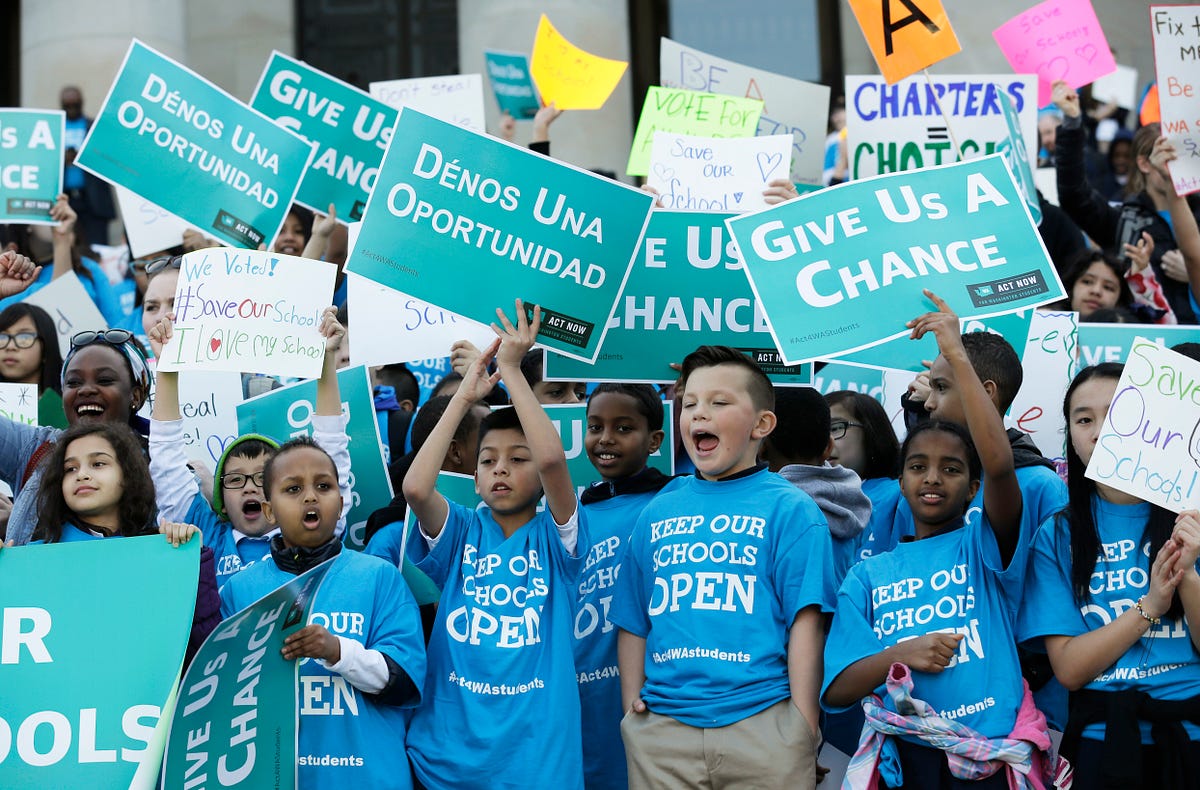Lawsuit claims that same-sex marriage leads to charter schools, and it may be right

Same-sex marriage leads to charter schools.
Or, at least, that’s what Josh Lipshutz tells me he hopes will happen in a call about Martinez v. Malloy, an ambitious lawsuit he help craft on behalf of several Connecticut families. Lipshutz, along with his law partners Ted Boutrous and Marcellus McRae of Gibson, Dunn & Crutcher, are the masterminds behind an aggressive effort to rethink the Supreme Court’s role in education. If they succeed, they will shake the foundations of more than forty years of Supreme Court precedent, inject the judiciary into one of the nation’s most contentious debates, and, they hope, enable many of Connecticut’s most underserved children to attend far better schools in the process.
Martinez argues that Connecticut violates “the fundamental due process and equal protection rights” of many poor and minority children. That’s not a new claim. In its 1973 decision San Antonio Independent School District v. Rodriguez, the Supreme Court narrowly rejected a similar attempt to label school systems that poorly serve low-income children a violation of “fundamental constitutional rights.” Moreover, as Lipshutz and his partners explain in a court filing, “most states have recognized a fundamental right to education under their state constitutions.”
What is new about Martinez, however, is the remedy it proposes if its plaintiffs ultimately prevail — fewer barriers to charter schools and magnet schools, plus more opportunity for students to attend classes across school district lines.
Martinez and its backers, in other words, hope to achieve one of the great unrealized liberal priorities from the last time America had a left-leaning Supreme Court — a fundamental right to education. They believe that the moment is right for such a decision in no small part because language in the Supreme Court’s marriage equality decision, Obergefell v. Hodges, opens the door to new lawsuits defending the rights of children.
Yet Team Martinez also hopes to wield this right to achieve the kind of outcomes that the Jacobin-reading crowd would deride as “neoliberal.” It openly embraces market-like reforms as the solution to an ailing education system. And this question of how to ensure that every students’ fundamental right to education is honored could prove to be even more vexing than the question of whether such a right exists.
So What Does Marriage Equality Have To Do With Charter Schools?
Martinez invokes one of the vaguest and most ill-defined legal doctrines that exists in American constitutional law. In addition to the rights specifically enumerated in the Constitution — the right to free speech, the right to practice one’s faith, and so forth — the Constitution also contains several broadly worded passages which allude to unenumerated rights. The Ninth Amendment, for example, provides that “the enumeration in the Constitution, of certain rights, shall not be construed to deny or disparage others retained by the people,” while the Fourteenth Amendment prohibits states from abridging “ the privileges or immunities of citizens of the United States.”
Meanwhile, modern Supreme Court doctrine holds that certain unenumerated rights are implicit in the Constitution’s promise that no one will be denied “liberty . . . without due process of law,” and that laws that provide such rights on an unequal basis may violate the constitutional guarantee of “equal protection of the laws.”
Yet, while the Constitution is very clear that certain rights exist which are not identified anywhere in the document itself, it provides hardly any guidance whatsoever on what these rights may be. In some of the Court’s darkest moments, this vagueness has enabled justices to effectively write their ideologies into the law, as they did in the early Twentieth Century with Lawsuit claims that same-sex marriage leads to charter schools, and it may be right:
